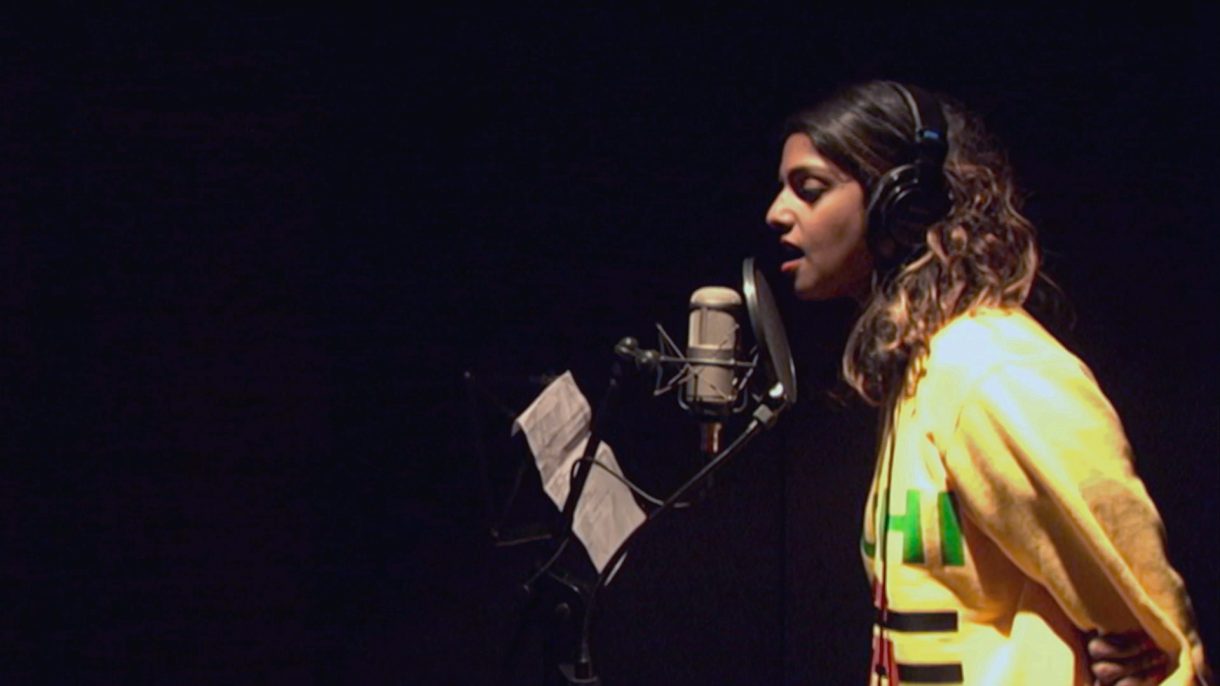
Dir.: Stephen Loveridge; Documentary starring M.I.A.; USA/UK 2018, 96 min.
Director Stephen Loveridge’s debut feature documentary is a tour-de-force of struggles, contradictions and art: rarely has a person had to fight so much for personal, political and artistic identity than M.I.A. – born in Hounslow, growing up in war-torn Sri Lanka and coming back to the UK to start a glittering artistic career, only to be de-railed by music industry and mainstream media, who could not handle her outspokenness.
Matanghi ‘Maya’ Arulprasan was born in London to the engineer and soon-to-be Tamil resistance leader Arul and his wife Kala in 1975. The family moved six months later to Sri Lanka, where M.I.A. grew up in a war torn country: The Civil War lasted from 1980 to 2009. Bombs where smuggled covered by toys, and Government soldiers shot at the school M.I.A. was attending. In 1986 Kala moved with her three children to India; and in the same year to London.
M.I.A. attended the Central St. Martin’s College of Art and Design, and gained a degree in 2000. Being first interested in visual arts and cinema, she later turned to music, creating hits like “Kala” (2007) and “Maya” (2010). But after her visit to Sri Lanka in 2001, she became politicized. The main stream media in the West reported the Civil War as a fight between Tamils (terrorists) against the legal Government – it was in reality a near-genocide of the minority. Not that her family had any pity on her: “You never had the war zone experience” – she was estranged from her own country, and back in London she was taunted as a “Paki”. In 2009 at the Grammy Awards, M..I.A was nine months pregnant, and commented that her interview in a newspaper was “too much about me”. To which the journalist replied: “You are the first to say this. People mostly want it to be about them”. A year later, further controversy occurred after the publication of a high-budget music video “Born Free”, which showed the rounding up of white boys with red hair, who would later be shot in the head. NY Times Magazine Lynn Hirschberg raved about the video originally, but later was very critical, misquoting M.I.A. And at the Half-Time at Super Bowl 2012, Maya was appearing with Madonna, giving the nation the middle-finger, after being angered by Madonna’s treatment as sexist: before she went on stage. She had to change her outfit after complaints by male managers of the event. The NFL (National Football League) sued M.I.A. for 16 million, the law suit was settled later in private. Her marriage to Benjamin Bronfman (a member of the Lehman family) lasted six years until 2012, the couple had a child. M.I.A. commented after the split “who Ben is, on paper, sounds more powerful than who I am, because of where he comes from”.
The documentary is book-ended by the music video “Borders” featuring refugees and migrants. It’s not a hagiography – Loveridge does not paint M.I.A. as a victim, but as a political artist, the overlapping borders between art and politics causing friction. And M.I.A.’s approach is not always the most sensible – but how could anyone be balanced and adjusted growing up in a civil war, one side led by your father? Loveridge directs with empathy, trying to do his subject justice, without losing all detachment. Overall Matangi/Maya/M.I.A. is not only substantial, but very entertaining. AS
ON RELEASE NATIONWIDE FROM 21 SEPTEMBER 2018